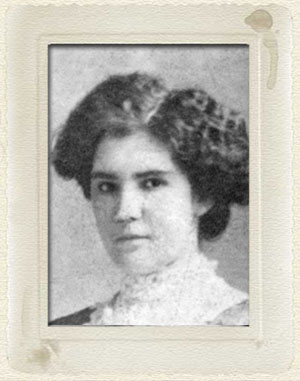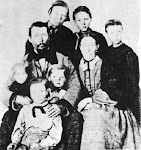2.04.2010
(50) Zemira part of Upper "Muddy Mission'
As stated, Zemira’s family had left Heber when he was called to Southern Utah in 1864-65, and located by direction of Stake President Erastus Snow at Meadow Valley. We learn that this was a part of the “Muddy Mission,” called the Upper Muddy, being located at the northern part of the Muddy Wash which winds down southward through Nevada and empties into the Virgin River near Overton in the Lower Muddy Mission area. (See Map 10)
A brief history written by Arletta Palmer, Zemira’s and Caroline’s oldest daughter, sheds some enlightenment as to who and where they were living when they left Heber. Sally’s son, Alma Zemira, adds more information, and Zemira’s diary is a prime source.
“In the winter of 1864 and 1865 before I was six we moved to Panaca, in what is now
Lincoln County, Nevada. My father, in connection with others was called to settle this
section of country, which is situated near the head of the Muddy Creek. At Panaca father
built a log cabin. My brothers George Edwin and Daniel Whitmore were born here. Next
we moved to Spring Valley, in the same section of the country, which was quite a town.
We did not remain there long.
Father sold his lot in Spring Valley and moved to Dry Valley where there was good feed for his stock. We lived in a dug-out for awhile, then father moved the log cabin we had at Panaca, to Dry Valley, a distance of 12 miles. My sister Almeda Eve was born here. My father’s brother, William (Palmer) and family who were also pioneers joined us at this place and lived here until we went to Panguitch.
We lived in Dry Valley about five years and then decided to move because of thieves among our stock, and also the settlements in this district (when the boundary line was drawn) were in Nevada and we did not care to settle permanently there so went to
Panguitch, where we lived one winter and I went to school. I first went to school in
Panaca and then Eagle while the family were living at Dry Valley . . . My father
conducted a night school for his children after the work of the day was ended.”78
78- Sarah Arletta Palmer Cox, A History of My Pioneer Ancestors
Subscribe to:
Post Comments (Atom)
Contributors

Lucile Brubaker (and her mother Lenna Cox Wilcock) are also contributing to this blog.





No comments:
Post a Comment